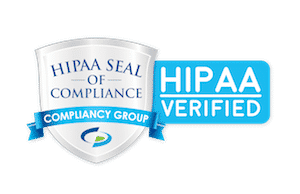
Attention to a child's eye health is a significant part of ensuring their overall wellbeing. This is where a pediatric eye exam comes into play. A pediatric eye exam is an in-depth assessment of your child's vision and eye health conducted by an eye care professional. It is more comprehensive than the simple vision screening tests offered at schools or pediatricians' offices. These exams are designed to identify and address potential visual impairments and eye health issues in children early on.
Understanding what a pediatric eye exam entails can help parents make informed decisions about their child's eye health. During the exam, the doctor will assess your child's eye movement and coordination, sharpness of vision, and overall eye health. They will look for any issues that could impair your child's vision or indicate eye disease. It's a painless process that can provide insights into your child's ocular health and, by extension, their overall development.
Importance of Children's Eye Exams
Children's eye exams are an essential aspect of child healthcare that is often overlooked. Why is it so important to get your child's eyes examined? The answer lies in the significant role vision plays in a child's life, particularly in their learning and development. Vision problems can affect a child's ability to focus in school, participate in activities, and even interact with others.
Vision issues can also impact a child's academic performance. If a child cannot see clearly, they may struggle to read, write, or engage in classroom activities. This can lead to frustration, lack of interest in learning, and even behavioral problems. By identifying and addressing vision problems early, you can help your child succeed in school and life.
Children's eye exams are also crucial for detecting eye diseases and conditions. Many eye diseases, like lazy eye, crossed eyes, or color blindness, develop during childhood. Early detection and treatment can prevent these conditions from worsening and impacting your child's quality of life.
The Correlation Between Vision and Learning
The connection between vision and learning is a topic that has been extensively researched and studied. The reason behind it is simple: much of what a child learns in school is presented visually. Therefore, any vision impairment can significantly impact a child’s ability to learn effectively.
Children who struggle with uncorrected vision issues often face challenges in their academic performance. They may find it hard to focus, read, write, or comprehend information. It's not just about blurry vision; even slight vision problems can cause reading difficulties, comprehension problems, and even affect their attention span.
Additionally, children with uncorrected vision problems may also exhibit behavioral issues in the classroom. They may seem uninterested, easily distracted, or even disruptive. This is often a coping mechanism for their inability to engage with the visual learning materials. It's essential to understand that these children are not intentionally disruptive; they are simply trying to cope with an undiagnosed vision issue.
The Right Time to Have Your Child's Eyes Examined Before School
Having your child's eyes examined before the school year can detect any vision issues that may hinder their learning progress. It is particularly essential if your child has never had an eye exam or if there are known vision issues in your family. Early detection and correction of vision issues can help your child start the school year on a positive note, ready to learn and grow.
Set Your Child for Success this School Year
A pediatric eye exam is a crucial aspect of ensuring your child's overall health and development. It can help identify and correct vision issues that could impact your child's learning and academic performance. It is also a preventive measure against eye diseases and conditions.
Before the new school year begins, consider scheduling a comprehensive eye exam for your child at Eye Care North in Cave Creek, Arizona. Call (480) 781-4446 to book your child’s eye exam today.





































































































































































































































































